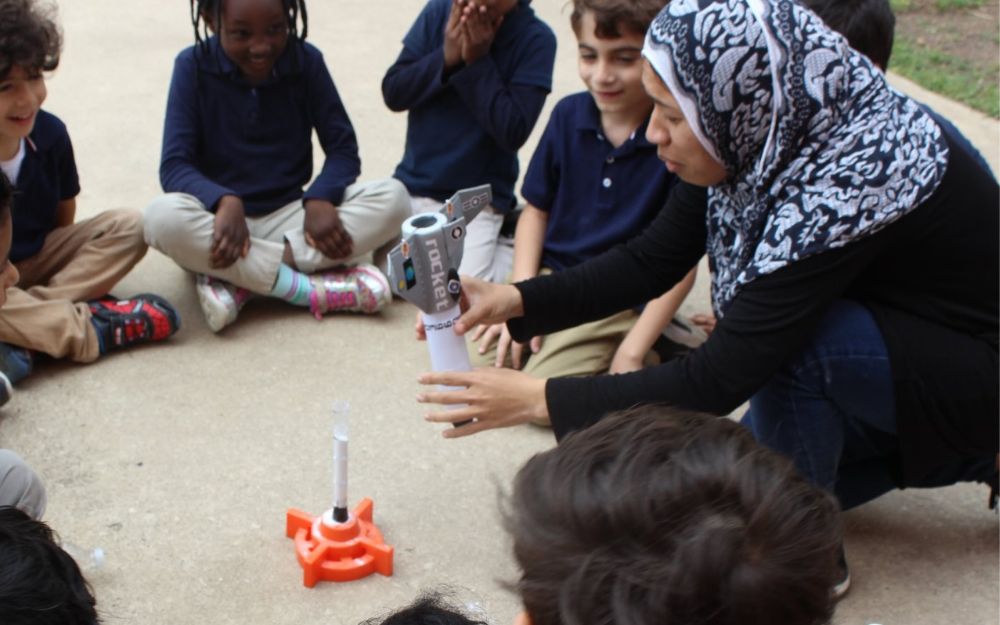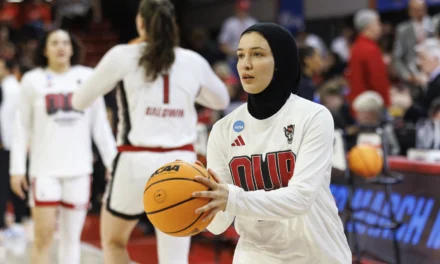Faith-based schools’ role has been critical in providing quality education to underserved communities in Texas. These institutions offer more than just academics for minority groups such as Muslims and Latinos in Texas. They offer a safe, culturally affirming space, prioritizing values, community, and holistic development. Faith-based schools are stepping in to address educational disparities due to different challenges public schools face, such as overcrowding and underfunding.
The past decade has seen a steep rise in faith-based schools in Texas. In Texas, there were over 1,300 religiously affiliated private schools in 2022, according to the National Center for Education Statistics (NCES). These schools were responsible for educating approximately 10% of all private school students in the state. Most of these schools were specifically designed to cater to Muslim and Latino communities.
For instance, Brighter Horizons Academy, an Islamic school in Garland, Texas, serves over 1,000 students annually. This institution, along with others like Iman Academy in Houston, combines academic rigor with Islamic teachings. This curriculum enables students to stay connected to their faith while excelling academically. According to the Texas Catholic Conference of Bishops, Catholic schools, which are prominent among Latino families, represent 24% of all private schools in Texas.
Academic Achievement in Faith-Based Schools
Students from faith-based schools perform better than students in public schools, according to statistics from different studies. Catholic school students had a 99% graduation rate, compared to 86% in public schools nationwide, according to a study by the Urban Institute in 2020. In the U.S., on average 44% of school graduates attend four-year colleges. In comparison, 85% of Catholic school graduates attended four-year colleges, significantly higher than the national average.
The results coming out of the Muslim schools are exceptional as well. Islamic Schools League of America (ISLA) published a report in 2021 which shows that 97% of students in Islamic schools graduate high school, and 85% go on to college. These are some very important statistics, considering how often minority communities face systemic barriers to higher education.
Addressing Cultural and Religious Needs
Islamophobia and anti-immigrant sentiments are getting more intense by the day in the U.S. Faith-based schools offer a sanctuary for minority students from these hateful emotions. According to a study by The Council on American-Islamic Relations in 2023, 51% of Muslim children in the U.S. reported experiencing bullying. These cases are often related to their religion. A protective environment, where students can openly practice their faith and culture without fear of discrimination, is provided by these faith-based schools.
Catholic schools often serve as a bridge between cultural heritage and academic success for these Latino families. 18% of students in Catholic schools nationwide are Latino according to the National Catholic Educational Association (NCEA), and this figure is rising rapidly. Bilingual education and support services are provided by these schools, tailored to immigrant families, which fosters a sense of belonging and community.
91% of parents chose faith-based education for its focus on values and ethical behavior
Financial Accessibility and Scholarships
The cost of private education is one of the most significant challenges for minority families. To tackle this problem, faith-based schools provide affordability through scholarships and financial aid. Programs like the Catholic School Tuition Assistance Fund distributed over $15 million in scholarships in 2022. This program, in Texas, benefited over 12,000 students from low-income families.
Islamic schools have implemented a similar program in the shape of zakat (charitable giving), to subsidize tuition for families in need. Al-Hadi School, for example, of Accelerative Learning in Houston offers financial aid to nearly 30% of its student body. This ensures that economic barriers do not hinder access to quality education.
Community and Character Development
Faith-based schools focus not just on academics but on moral and character development as well. 91% of parents chose faith-based education for its focus on values and ethical behavior, according to a 2023 study by the Association of Christian Schools International (ACSI). This approach aligns with the cultural and religious priorities of minority communities, thus developing a sense of pride and identity among students.
Community involvement and social responsibility are also encouraged by faith-based schools. Students are taught the importance of civic engagement and empathy in many Islamic schools in Texas. These schools combine service projects and interfaith initiatives with their curriculum in order to teach students to be accepting of other cultures and religions.
Faith-based schools offer academic excellence, cultural affirmation, and holistic development to their communities. This demonstrates how invaluable they are in supporting minority education in Texas, helping and empowering students from minority communities to achieve their full potential. They also play a huge part in developing a sense of identity and belonging for these students.















